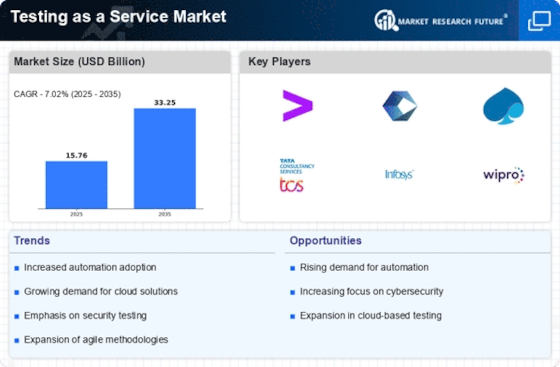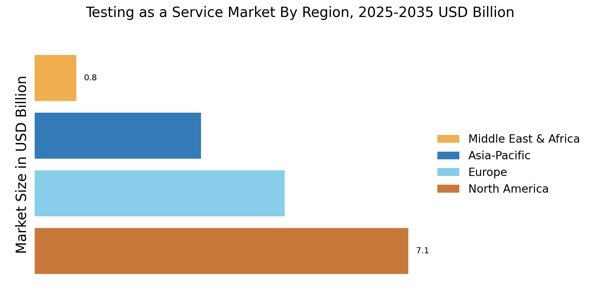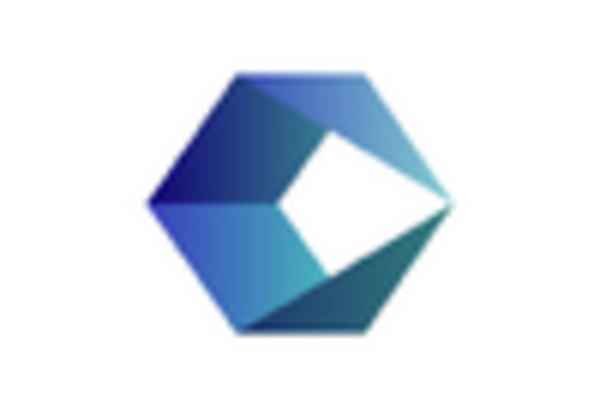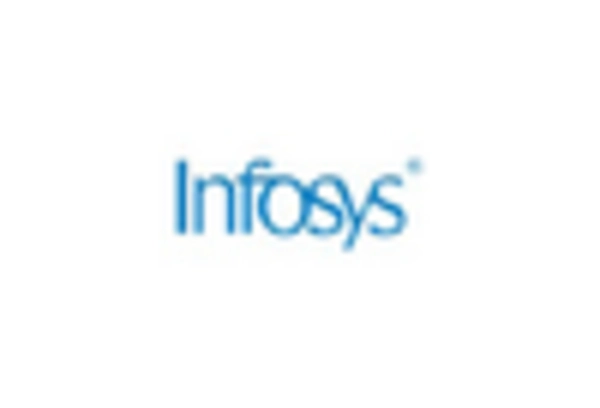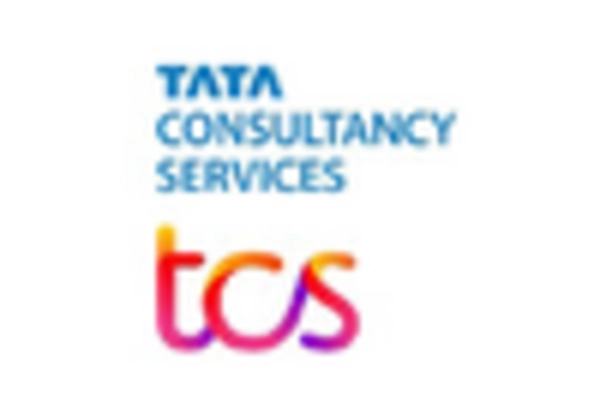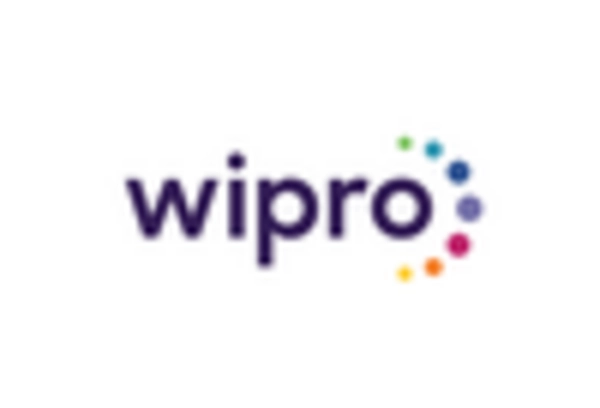Emergence of DevOps Practices
The integration of DevOps practices into software development is significantly influencing the Testing as a Service Market. DevOps emphasizes collaboration between development and operations teams, fostering a culture of continuous integration and continuous delivery. This shift necessitates a robust testing framework that can keep pace with rapid development cycles. Testing as a service solutions are increasingly being adopted to facilitate this integration, as they offer scalable and efficient testing capabilities. Recent statistics indicate that organizations implementing DevOps practices experience a reduction in software delivery times by up to 50%. This efficiency gain is likely to drive further adoption of testing as a service, as companies seek to streamline their development processes while ensuring high-quality outputs. The emergence of DevOps practices is thus a critical driver for the Testing as a Service Market, shaping the future of software testing.
Growing Need for Agile Development
The Testing as a Service Market is experiencing a notable shift towards agile development methodologies. Organizations are increasingly adopting agile practices to enhance their software development processes, which necessitates a more flexible and efficient testing approach. This trend is driven by the need for faster time-to-market and the ability to respond swiftly to changing customer requirements. As a result, testing as a service solutions are being integrated into agile frameworks, allowing for continuous testing and feedback loops. According to recent data, the agile testing market is projected to grow at a compound annual growth rate of over 20%, indicating a robust demand for testing services that align with agile principles. This growing need for agile development is likely to propel the Testing as a Service Market forward, as organizations seek to optimize their testing processes in line with agile methodologies.
Increased Focus on Quality Assurance
Quality assurance remains a cornerstone of software development, and the Testing as a Service Market is witnessing an increased emphasis on this aspect. Organizations are recognizing that delivering high-quality software is essential for maintaining competitive advantage and customer satisfaction. As a result, there is a growing investment in testing services that ensure software reliability, performance, and security. The market for quality assurance testing is expected to reach substantial figures, with estimates suggesting it could surpass several billion dollars in the coming years. This heightened focus on quality assurance is driving demand for testing as a service solutions, as they provide organizations with the expertise and resources needed to implement comprehensive testing strategies. Consequently, the Testing as a Service Market is likely to benefit from this trend, as companies prioritize quality in their software development lifecycle.
Growing Regulatory Compliance Requirements
The landscape of software development is increasingly shaped by regulatory compliance requirements, which are becoming a pivotal driver for the Testing as a Service Market. Organizations are mandated to adhere to various industry standards and regulations, necessitating rigorous testing to ensure compliance. This trend is particularly evident in sectors such as finance, healthcare, and telecommunications, where non-compliance can result in severe penalties. The market for compliance testing services is expected to grow substantially, as companies seek to mitigate risks associated with regulatory breaches. Recent data indicates that organizations investing in compliance testing can reduce their risk exposure significantly. As a result, the growing regulatory compliance requirements are likely to propel the demand for testing as a service solutions, as they provide the necessary expertise and resources to navigate complex compliance landscapes.
Rising Complexity of Software Applications
As software applications become increasingly complex, the demand for sophisticated testing solutions is on the rise within the Testing as a Service Market. Modern applications often incorporate various technologies, platforms, and integrations, making traditional testing methods inadequate. Organizations are now seeking advanced testing services that can address the multifaceted nature of contemporary software. This complexity is reflected in market data, which suggests that the need for specialized testing services, such as performance and security testing, is growing rapidly. The market for these specialized services is projected to expand significantly, indicating a shift towards more comprehensive testing approaches. Consequently, the rising complexity of software applications is likely to drive innovation and investment in the Testing as a Service Market, as companies strive to ensure their applications function seamlessly across diverse environments.


